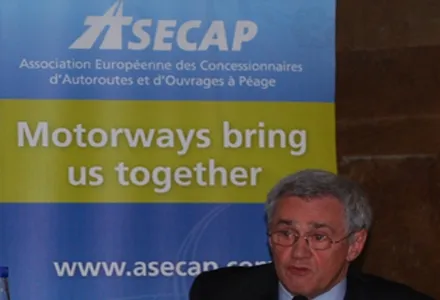
ASECAP, the European Association of Operators of Toll Road Infrastructures, has appointed Julián Núñez as president for 2024.
Núñez has been president of Seopan, the Spanish Association of Infrastructure Contractors and Concessionaires, since 2013.
He takes as president in the run-up to the 51st ASECAP Study and Information Days set for May 13 to 15 in Milan.
The event will be hosted by Italy’s AISCAT (the Italian Association of Motorway and Tunnel Concessionaires) and Milano Serravalle - Milano Tangenziali, part of the FNM Group, is an Italian concessionaire based in Assago. It manages 180km of motorway, in including the A7 from Milan south to Serravalle Scrivia and ring roads around Milan.
“Julián’ skills and expertise will bring great value to Asecap and the toll road infrastructure companies” said Malika Seddi, ASECAP secretary general and chief executive.
Infrastructure has a major role to play in reaching the European Union's goal to be carbon neutral by 2050, said Núñez, a civil engineer. Green issues will be a major focus during Núñez's year-long tenure.
"More than ever today, there is a need to invest in transport decarbonisation which will be only effective if road transport is decarbonised," he said. "There is also an important priority to maintain road infrastructure to keep them resilient and compliant with all the environmental issues."
Núñez is also vice president and a member of the board of directors at the Spanish Confederation of Business Organisations, vice president of the National Confederation of Construction, council member of the Labor Foundation of Construction and a member of the Spanish Road Association board of directors.
Núñez has been president of ASECAP before, notably in 2017-18 during a financially difficult time for Spanish concession holders (see World Highways interview).
The 51st ASECAP Study and Information Days will have as a theme “Innovation as a key tool to reach safe, inclusive and green mobility solutions”. It will focus on how to foster safe and more mobility solutions by stimulating investments aimed at reaching the EU objectives of “vision zero” in terms of fatalities and reduced CO₂ emissions.
The 2024 ASECAP Days website is up and running, with information on about the agenda all practical details such as accommodation and travel information. Registration is open and there is an early-bird special fee up until March 15. Also, interested sponsors and exhibitors can find all the event's opportunities on the website: www.asecap.com.









